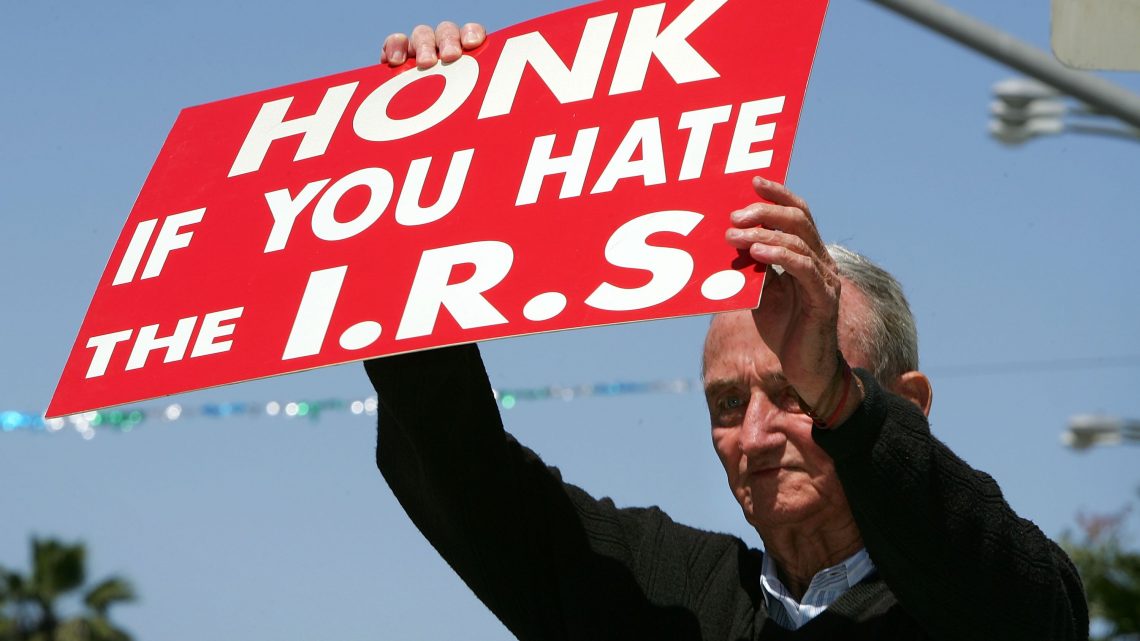
The IRS Is Ignoring Rich Tax Dodgers and Going After the Poor
December 11, 2018On Tuesday, ProPublica and The Atlantic published an investigation into one of the longest-running and most troubling trends in the United States government: the slow, quiet destruction of the Internal Revenue Service. Decades of Republican attacks and budget cuts have left the IRS a shell of its former self, and with a businessman whose family specialized in dodging taxes occupying the White House, it's unlikely in the extreme that the government will adequately fund audits of the rich people and corporations who hide their wealth. The reduction in the IRS budget has had a huge impact: "ProPublica estimates a toll of at least $18 billion every year, but the true cost could easily run tens of billions of dollars higher," according to the report.
But even as the agency has struggled to pursue tax cheats, one group hasn't escaped scrutiny even from a weakened IRS: Poor people. As ProPublica reports:
The IRS oversees one of the government’s largest anti-poverty programs, the earned income tax credit, which provides cash to the working poor. Under continued pressure from Republicans, the IRS has long made a priority of auditing people who receive that money, and as the IRS has shrunk, those audits have consumed even more resources, accounting for 36 percent of audits last year. The credit’s recipients—whose annual income is typically less than $20,000—are now examined at rates similar to those who make $500,000 to $1 million a year. Only people with incomes above $1 million are examined much more frequently.
The EITC gives a couple thousand dollars to recipients on average, which can make a major difference in people's lives. But as the American Prospect reported earlier this year, claiming that money can be complicated. Sixty percent of EITC returns are completed by commercial tax preparers, an often predatory industry that targets the poor. And when EITC recipients are audited, they are less likely to claim the credit in the future, according to the National Bureau of Economic Research. A Republican-led proposal to more carefully verify the incomes of EITC beneficiaries—a punitive measure that would have put an even greater burden on the IRS—didn't make it into last year's tax cut package, but those who take advantage of the EITC are already under a heightened amount of scrutiny compared to other taxpayers. This is especially maddening because the IRS produces more revenue when it audits rich people, who in turn are way less likely to undergo anything resembling hardship, even if they owe money.
While Republicans are evidently concerned about making sure poor people don't receive the incorrect amount of money from an anti-poverty measure, the GOP hasn't shown the same anxiety when it comes to tossing around benefits for the wealthy and corporations. The tax cut bill hasn't brought back manufacturing jobs to the US, as Trump said it would, and it has predictably caused government deficits to spike, as Republicans said it wouldn't.
Splashy, reckless tax cuts are one way conservatives have caused money to flow from the government's coffers into the pockets of the wealthy. The IRS cuts are a more subtle instrument, but the effect over time is dramatic. "Annual revenue from audits is down by about $10 billion, adjusted for inflation, since 2010, and billions more have been lost by not pursuing nonfilers and other sources of unpaid tax debts," reports ProPublica. Since 2011, total losses have reached roughly $95 billion, and there is a troubling ripple effect on the horizon, as people who have effectively avoided paying or even filing taxes realize they can get away with it and continue to dodge the feds.
The GOP's philosophy when it comes to taxes and benefits, as revealed by its actions and policy preferences, is that the poor should be carefully scrutinized any time they receive help in staying alive. That's how you get audits for EITC beneficiaries as well as things like drug tests and work requirements for food stamps and Medicaid. The rich, on the other hand, should be able to do whatever they want—dodge taxes, engage in insider trading, take advantage of ordinary workers. The IRS is not so much declining as it is succumbing to a relentless, radical, right-wing agenda. Pushing back on it, an effort that will need to include properly funding the IRS again, will be a difficult project for Democrats. But it's one they need to undertake if that swamp we've heard so much about is ever going to get drained.
Follow Harry Cheadle on Twitter.


